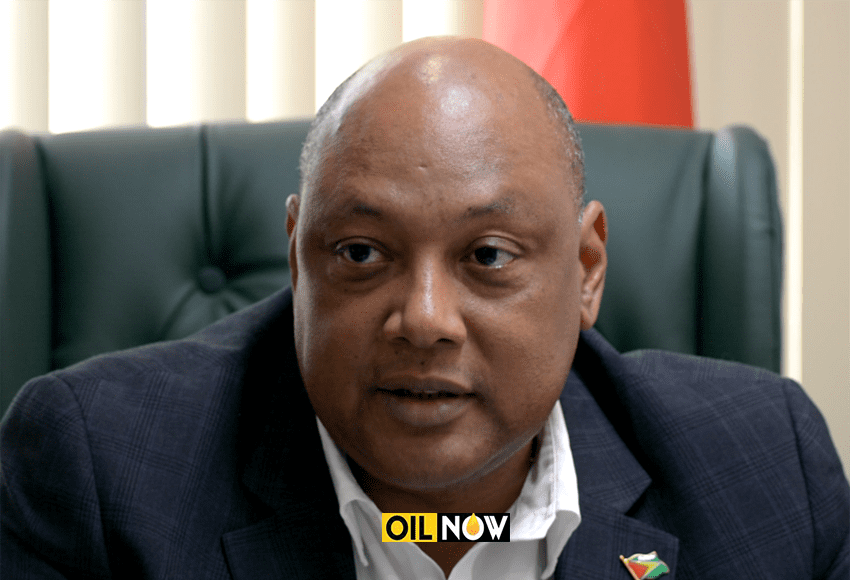Guyana’s move towards becoming an oil producer will have a profound socio-economic, cultural and political impact on the country, and as such, having the petroleum portfolio lie directly with the President – as it did in the past – is in the best interest of the country. So says Minister of Natural Resources, Raphael Trotman, who has been responsible for the sector since the new coalition-led government came to office in 2015.
OilNOW sat down with Mr. Trotman on Friday at his Brickdam, Georgetown office for an update on the interventions being made to prepare the South American country for first oil in 2020.
The Natural Resources Minister was asked to explain the rationale behind the establishment of the new Department of Energy and its role in relation to the already existing Petroleum Department and soon to be constituted Petroleum Commission.
Mr. Trotman said towards the middle of 2017 he had a “eureka moment” with the realization that oil will replace sugar in terms of its impact and transformational capacity on the country. “This (oil) is more than a industry. This is going to affect our culture, it’s going to have socio-political, socio-economic impacts and I thought that it should revert to a large extent to the President where it has always been. I am the first Minister to be actually given responsibility for petroleum. In the past the President has always held that…,” he said.
This was raised with President David Granger on a few occasions, he pointed out, and towards the end of last year “I actually produced and give to him a paper with my thoughts and it would have been in February of this year that he said that he agreed with my proposal and that we should start the process of creating a stand-alone agency which hopefully would evolve into a Ministry, and that will be focused only on petroleum and all aspects of petroleum.”
The Department of Energy, he said, will essentially be the Ministry of Petroleum and as such the Petroleum Commission, as the regulatory body, will have a clear and distinct role to play in the industry. “The two entities are not to be confused as being one and the same and the idea is that we will have the Commission and we will have a stand-alone entity as a Ministry as well, and the two processes will proceed on parallel tracks but of course, interrelated,” he stated.
Name of department
The Natural Resources Minister said as part of his recommendation to the President, the name he proposed was Department of Energy and Development. “For me it’s not just how much oil we produced; it’s where the money will be spent and what social programmes…we have political and ethnic tensions in Guyana and we have to ensure that those are not exacerbated, they are managed. That is why I termed it energy and development,” he said.
Who is in charge?
Mr. Trotman was asked who, under the new dispensation, would be directly in charge of petroleum and function in the capacity he would have been functioning in since 2015, as the point person for oil and gas related matters.
“Those are matters that we are going to work out. My proposal is that the President becomes the head of this new agency because the vision has to come from him. Like other Ministers I will be available to play a role and that is what we are going to define; what each Ministry that is interrelated or connected to this – what role will each play,” he indicated.
It is expected that Minister of State, Joseph Harmon, will handle all matters related to the department in the National Assembly, since the new agency will be housed at the Ministry of the Presidency.
Mr. Trotman has been asked by President Granger to play a lead role in the establishment of the new department. The first meeting to look into this was held on Friday.





No; we need a bipartisan parliamentary committee to look over the oil and gas industry.